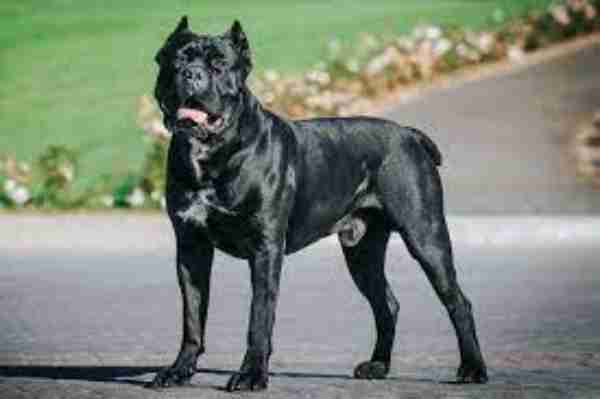During the summer, it is common to enjoy fresh and warm foods such as corn on the cob, and your canine companion may request a share. It is generally safe for dogs to eat corn (without the cob), but caution should be exercised with other grilled items that may be harmful to them.
Table of Contents
After conducting studies and seeking advice from reputable nutritionists, we have come to the conclusion that incorporating corn into a dog’s diet is both safe and beneficial. People often inquire about the suitability of corn for dogs, asking questions like “Can dogs have corn?” “Is corn good for dogs?” and “Can corn be harmful to dogs?”
In this detailed exploration, we will examine all the potential advantages and risks of feeding corn to your dog. By doing so, you can feel confident and at ease the next time you decide to share this delightful vegetable with your beloved four-legged companions.

Can Dogs Eat Corn: What Are the Benefits
Feeding your dog a small amount of corn is entirely safe and won’t cause any harm. In fact, research has shown that corn is highly digestible, which is why it often ranks as the second ingredient in many canine diets, just after rice.
Corn is a widely consumed grain worldwide, and depending on its variety, it offers a range of valuable nutrients for your furry companion:
- Easily digestible carbohydrates that provide a great source of energy for your four-legged friend.
- Protein and amino acids are essential for maintaining healthy skin, hair, and strong muscles.
- Antioxidants like beta-carotene and vitamin E, boost the immune system and contribute to overall health.
- Linoleic acid is an omega-6 fatty acid that dogs cannot produce on their own. It is vital for a strong immune system and for maintaining healthy skin and coat.
- Dietary fibre, which promotes gut health and regular bowel movements.
With these nutrients, corn can be a beneficial addition to your dog’s diet, enhancing their overall well-being and keeping them in good health.
Can Dogs Eat Corn: Can Corn Be Bad For Your Dogs
Corn is generally considered safe for puppies and can be a part of a healthy diet, but it should be given in moderation. It’s important to remember that treats should only make up a maximum of 10% of your dog’s overall diet. Feeding them excessive human food, including corn, may lead to nutritional imbalances or weight gain.
While corn allergies are rare in dogs, they can still occur. If your dog shows signs of a corn allergy, such as diarrhoea, itching, vomiting, abdominal cramping, skin irritation, hives, biting of the paws, or obsessive licking, it’s essential to consult your veterinarian. The vet will need to conduct tests to rule out other potential causes of these symptoms, as they can resemble signs of other diseases or food allergies.
If your veterinarian suspects a food allergy, they will guide you on how to identify the specific allergen through an elimination diet. During this process, you’ll need to strictly follow the recommendations provided by your vet. If corn is identified as the culprit, it’s crucial to research dog diets that do not contain any corn or corn-based ingredients to ensure your pet’s health and well-being.
Always prioritize your pet’s health and work closely with your veterinarian to address any dietary concerns or potential allergies to provide the best possible care for your furry friend.
Will Dogs Eat Corn Off the Plate?
Corn may be an underestimated nutritional powerhouse. It is packed with a variety of essential nutrients, including protein, carbs, fat, fibre, vitamins, linoleic acids, and antioxidants. However, despite its potential health benefits, corn is often relegated to the role of a filler in many food products.
This begs the question: can dogs consume corn just like their human counterparts? While it is perfectly fine to share a portion of your corn with your furry friend, it’s important to exercise caution. Ensure that the corn you feed your dog is free from added ingredients that could pose a risk to their health, such as butter, oil, sodium, or seasonings.
Can Dogs Eat Corn on the Cob?
Under no circumstances should you give your dog any corn on the cob, no matter how endearing their stare maybe while you’re eating it. Dogs have a tendency to chew the cob into smaller pieces, which could lead to choking or suffocation. Additionally, if they swallow the cob, it could cause a severe intestinal blockage, posing a serious health risk.
It may seem like something dogs would have difficulty eating, but if they are hungry enough, they may attempt to consume the entire cob, which is extremely dangerous.
If you suspect that your dog has ingested a corn cob, watch out for signs of intestinal blockages, such as dehydration, listlessness, decreased energy, recurrent vomiting, loss of appetite, and diarrhoea. If your dog exhibits any of these symptoms, it is crucial to seek immediate veterinarian care.
Preventing access to corn cobs and other hazardous food items is essential in ensuring your dog’s safety and well-being. Always be cautious about the foods you offer to your pet and keep potentially harmful items out of their reach. If you suspect any health issues, consult a veterinarian promptly to address the problem and ensure your dog’s health is not compromised.

Is It Possible for a Dog to Eat Popcorn?
Plain popcorn, specifically air-popped popcorn without any seasoning like salt or butter, is safe for canines and can be a delightful occasional treat. It is a light and natural snack that offers the added benefit of being rich in fibre and providing extra carbohydrates for energy.
However, it’s important to be cautious about the unhealthy versions of popcorn, such as those drenched in salt, butter, and other flavourings. These should be kept out of your dog’s reach to prevent any accidental consumption.
If you decide to share some plain popcorn with your dog, ensure that every kernel is popped before giving it to them. Unpopped kernels can potentially cause an upset stomach in dogs. Additionally, be mindful of popcorn getting stuck in their teeth, as it may lead to cavities and gum disease. Like with humans, overindulgence in popcorn can also result in weight gain in animals.
Moderation is key when offering popcorn to your furry companion. It should be given as an occasional treat, and you should avoid excessive amounts to maintain your overall health and well-being. By following these guidelines, you can safely enjoy sharing plain popcorn with your dog without any worries.
Can Dogs Eat Corn Muffins or Cornbread?
It is not advisable to offer dogs dog treats made from corn, such as corn muffins and cornbread. These treats contain substantial quantities of butter, salt, and sugar, which can be detrimental to your dog’s health if consumed excessively.
If your dog happens to pick up a piece of food from the floor and eats it, it should generally be fine. However, regularly feeding them a significant amount of cornbread or similar corn-based treats can result in various adverse health effects.
When selecting corn-based treats like corn muffins and cornbread for your dog, it is crucial to prioritize their well-being. These treats often contain generous portions of butter, salt, and even sugar, all of which can have detrimental effects on their health. While occasional accidental ingestion of food from the floor is unlikely to cause harm, regularly offering corn-based treats to your dog is not recommended. Dogs have different digestive systems compared to humans, and certain foods can cause digestive issues or even contribute to obesity in dogs.

Can Dogs Eat Cornmeal?
Cornmeal and corn flour are two common ingredients found in many baked goods and recipes. These ingredients are essentially made from ground-down dry maize kernels and are known for their starchy properties, which make them a great option for thickening baked items and adding texture to the dough.
While many pet owners may wonder if their dogs can eat cornmeal, the answer is yes – in moderation. However, it’s important to ensure that the other ingredients in the food are suitable for dogs as well, as some human foods can be harmful to our furry friends.
Can Dogs Eat Corn Kernels?
Corn kernels are an excellent snack for dogs because of their size and nutritional value. Unlike larger foods, corn kernels pose little to no choking hazard, making them an ideal snack for dogs of all sizes. Additionally, corn kernels are packed with fibre and essential nutrients that help maintain a healthy digestive system.
However, it’s important to keep in mind that a dog’s diet should be balanced and controlled and that excessive fat intake can lead to weight gain and digestive issues. When feeding your dog corn kernels, make sure they are served plain, without any added salt, butter, or other additives that can alter their natural flavour and potentially harm your pet.
Can Dogs Eat Sweet Corn?
Sweet corn harvested at a younger age has a higher sugar content, which makes it extra appealing to our taste buds. However, this corn is also quite starchy and can be harder to digest. Though some people might fear that sweet corn is harmful, the truth is that it’s perfectly safe to share with your furry best friend, as long as you do so in moderation.
FAQs
Why can’t dogs eat corn?
While it may not cause any significant harm, corn is not easily digestible for dogs, causing them to have an upset stomach or diarrhoea. Dogs also lack the enzyme needed to break down carbohydrates properly, making it more challenging to digest corn.
Can dogs eat rice and corn?
The good news is that dogs can consume both rice and corn, as they do not pose any immediate danger to their health. However, it is important to note that corn should be fed to dogs in moderation, as it has a high carbohydrate content that can lead to weight gain if consumed excessively. Additionally, it is crucial to ensure that the corn is fully cooked and does not contain any seasonings or additives, as they can be harmful to dogs.
Can dogs eat peas and corn?
When it comes to peas and corn, many people wonder if their dogs can enjoy these vegetables as well. While both are safe for dogs to eat in moderation, there are a few things to keep in mind. Corn, for example, is often used as a filler in many dog foods and treats. However, it’s best to feed your pup fresh or frozen corn that hasn’t been processed with salt or other additives. Peas, on the other hand, are a great source of fibre and protein for dogs.
Final Words
Are you curious about whether your furry friend can safely enjoy corn? The answer is yes, dogs can usually eat corn without any problems. It’s a great source of carbohydrates and provides a natural source of fibre for your pup.
However, as with any human food, corn should always be given in moderation. Fortunately, corn allergies in dogs are incredibly rare, with less than a 1% chance of sensitivity. If you notice your dog experiencing itching or gastrointestinal issues like vomiting or diarrhoea after eating corn, it’s important to consult with your veterinarian to rule out any potential complications.
Reference:
- https://www.pdsa.org.uk/pet-help-and-advice/looking-after-your-pet/puppies-dogs/safe-fruit-and-veg-for-dogs
- https://www.caringvets.com/my-dog-just-ate-a-corn-cob
- https://dawgiebowl.com/blog/roti-gluten-kills-pet-dogs-cats/

Rahul M Suresh
Visiting the Zoo can be an exciting and educational experience for all involved. As a guide, I have the privilege of helping students and visitors alike to appreciate these animals in their natural habitat as well as introducing them to the various aspects of zoo life. I provide detailed information about the individual animals and their habitats, giving visitors an opportunity to understand each one more fully and appreciate them in a more intimate way.









